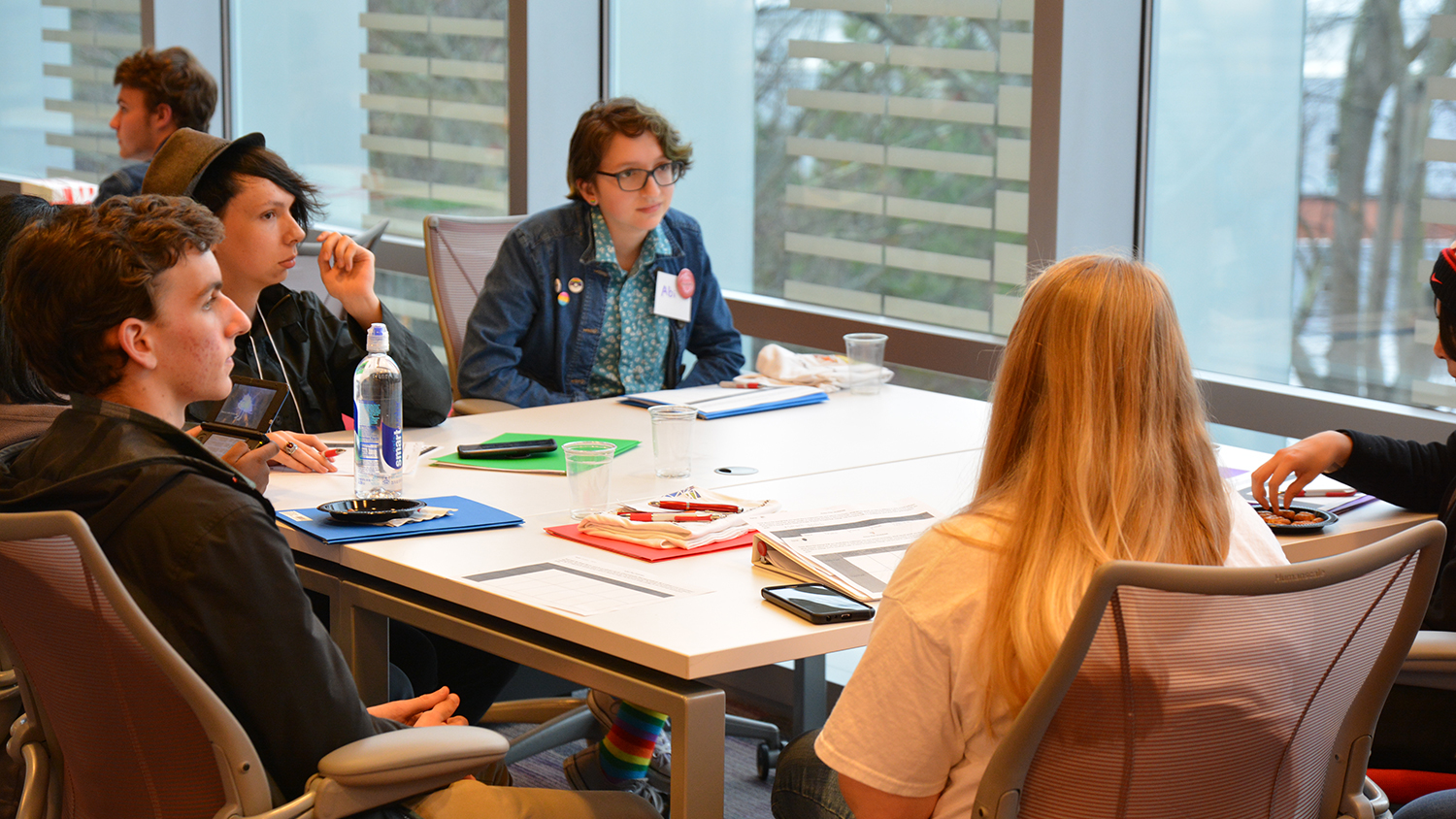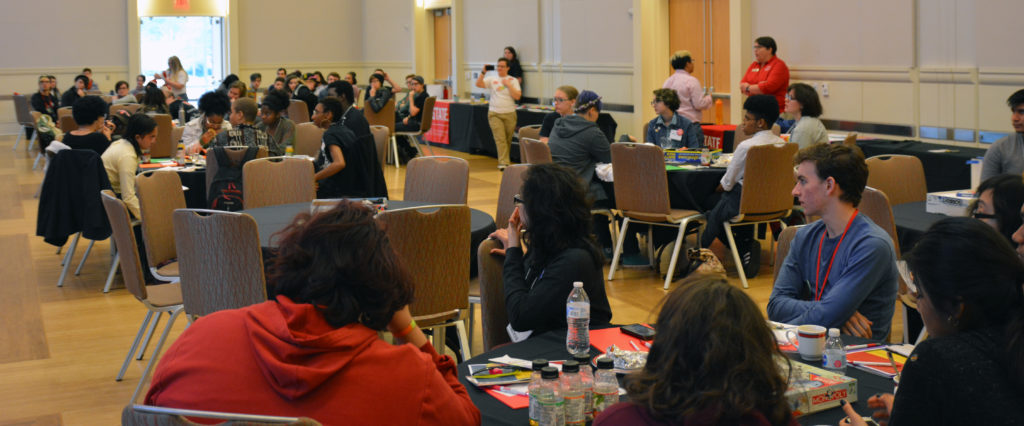GLBT Center Hosts Inaugural Queer Youth Leadership Summit

On Saturday, February 17, 2018 the GLBT Center hosted thirty-five high school students from across the Triangle area for its inaugural Queer Youth Leadership Summit (QYLS). QYLS provided leadership development, social justice advocacy training, coalition-building and capacity-increasing opportunities for GLBT high school students. By bringing together high school youth, QYLS gave participants the opportunity to build connections with other pre-college students, build skills for social justice advocacy, hear about resources and tools that have helped NC State students transition to college and practice creating long-term and short-term action plans to enact change in their local communities.
The GLBT Center presented the Queer Youth Leadership Summit as the result of a grant from the Alliance For Full Acceptance Small Grants Program to create a large-scale program supporting local GLBT youth in the Raleigh and Durham area.

Summit Topics
Throughout the day, participants attended workshops along three different tracks, Leadership Development, Advocacy and Intersectional Awareness, to deepen their understanding of social justice and think about ways in which they might grow their activism. Facilitated by staff members from the Center for Student Leadership, Ethics, and Public Service, Multicultural Student Affairs and the GLBT Center as well as community partners from Youth Organizing Institute, El Centro Hispano and Bull City Schools United, participants engaged in critical dialogue about identity, social change, inclusion and equity.
While QYLS served as a program to promote advocacy and leadership development, it also provided a space for students to discuss navigating the transition between high school and college as a queer-identified person. Participants engaged in a panel discussion led by current NC State student leaders to ask questions about reporting discrimination, finding community, housing options for queer and transgender students and campus climate. Samanuel Martin, a fourth-year student, stated, “Having an opportunity to gather as queer youth in high school was empowering; something I could not have dreamed of when I was their age.” He further stated, “Having access to this information prior to coming to college would have made my transition a lot smoother.”
Participant Goals
At the conclusion of QYLS, participants identified short- and long-term goals and developed action plans to achieve them. Volunteer student coordinators facilitated conversations around actionable items that participants could work towards over their desired timelines. The facilitators will follow up with the participants over the next month to chart their progress towards their goals and provide additional action planning assistance. Program organizers hope that participants will become agents of change in their local communities.
Among the participant comments, some were inspired to “promote the education of teachers on queer issues and how to avoid alienating queer students.” One participant indicated that they wanted to “acknowledge and call out all signs of oppression and where they intersect,” as well as “advocate for queer people of color.” Another participant added that they would like to, “expand to more educated inclusion of intersectionality within the LGBTQ community.”
Preston Keith is the assistant director of the GLBT Center.
- Categories:


